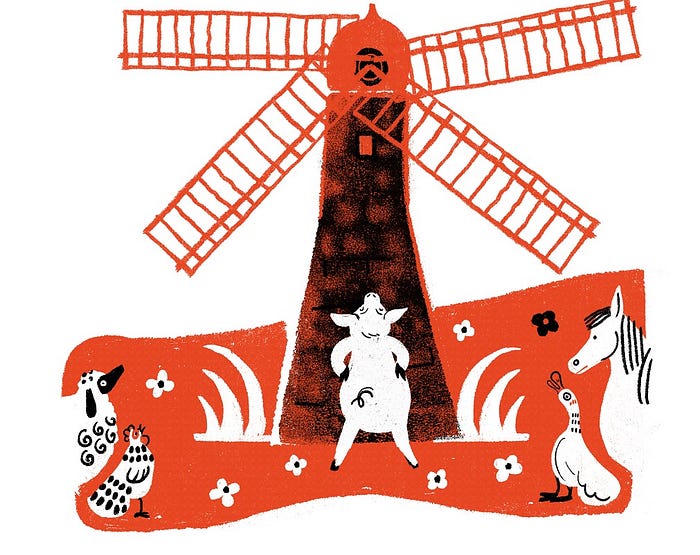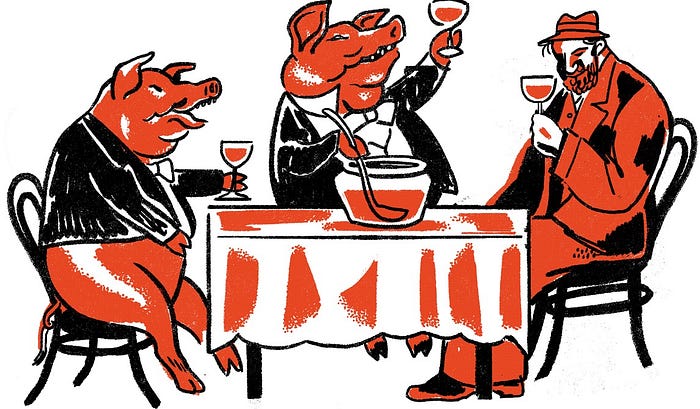“Animal Farm: A Timeless Critique of Political Power and Abuse”
George Orwell’s Animal Farm is a political allegory and satire that tells the story of a group of farm animals who rebel against their human owner, Mr. Jones, and establish their own society based on the principles of animalism. However, as time passes, the pigs, who take on leadership roles, become increasingly corrupt, leading to a society that is no different from the one they originally rebelled against.

The novel was published in 1945, towards the end of World War II, and was inspired by the Russian Revolution of 1917 and the rise of Joseph Stalin. The story is a commentary on the dangers of totalitarianism and the corrupting influence of power.
Animal Farm begins with the animals on Manor Farm feeling oppressed by their human owner, Mr. Jones. They are inspired by the dream of a better life, where all animals are equal and free from human oppression. After the animals overthrow Mr. Jones and take control of the farm, they establish a new society based on the principles of animalism.
At first, the new society appears to be successful. The animals work together to run the farm and the pigs, who are the most intelligent of the animals, take on leadership roles. However, as time passes, the pigs become increasingly corrupt and power-hungry. They start to oppress the other animals, becoming the new ruling class and adopting human-like behaviors such as walking on two legs and wearing clothes.
Throughout the novel, Orwell uses satire and allegory to criticize totalitarianism and the cult of personality that often arises in such regimes. He shows how leaders who were once seen as heroes can become corrupt and power-hungry, leading to a society that is no different from the one they originally rebelled against.

The character of Napoleon, a pig who takes on a leadership role in the new society, is particularly significant. He is a representation of Joseph Stalin, the leader of the Soviet Union during Orwell’s time. Napoleon’s character is shown to be cunning, manipulative, and ruthless, and he uses propaganda and force to maintain his grip on power.
The novel also highlights the role of language and propaganda in maintaining power. The pigs use slogans such as “Four legs good, two legs bad” and “All animals are equal” to rally the other animals behind them. However, as they become more corrupt, they twist the meanings of these slogans to justify their actions and maintain their power.
Orwell’s use of animals as the main characters in the novel is also significant. By using animals, he is able to explore complex political themes in a way that is accessible and relatable to a wider audience. The different animal characters represent different social groups and classes, such as the working class, the middle class, and the ruling class.
In conclusion, George Orwell’s Animal Farm is a powerful political allegory and satire that highlights the dangers of totalitarianism and the corrupting influence of power. Through its use of animals as characters and its exploration of themes such as propaganda, language, and leadership, the novel remains a relevant and important work of literature today. Orwell’s message is clear: we must be vigilant in guarding against the corrupting influence of power, and we must always be wary of those who seek to manipulate and control us.
